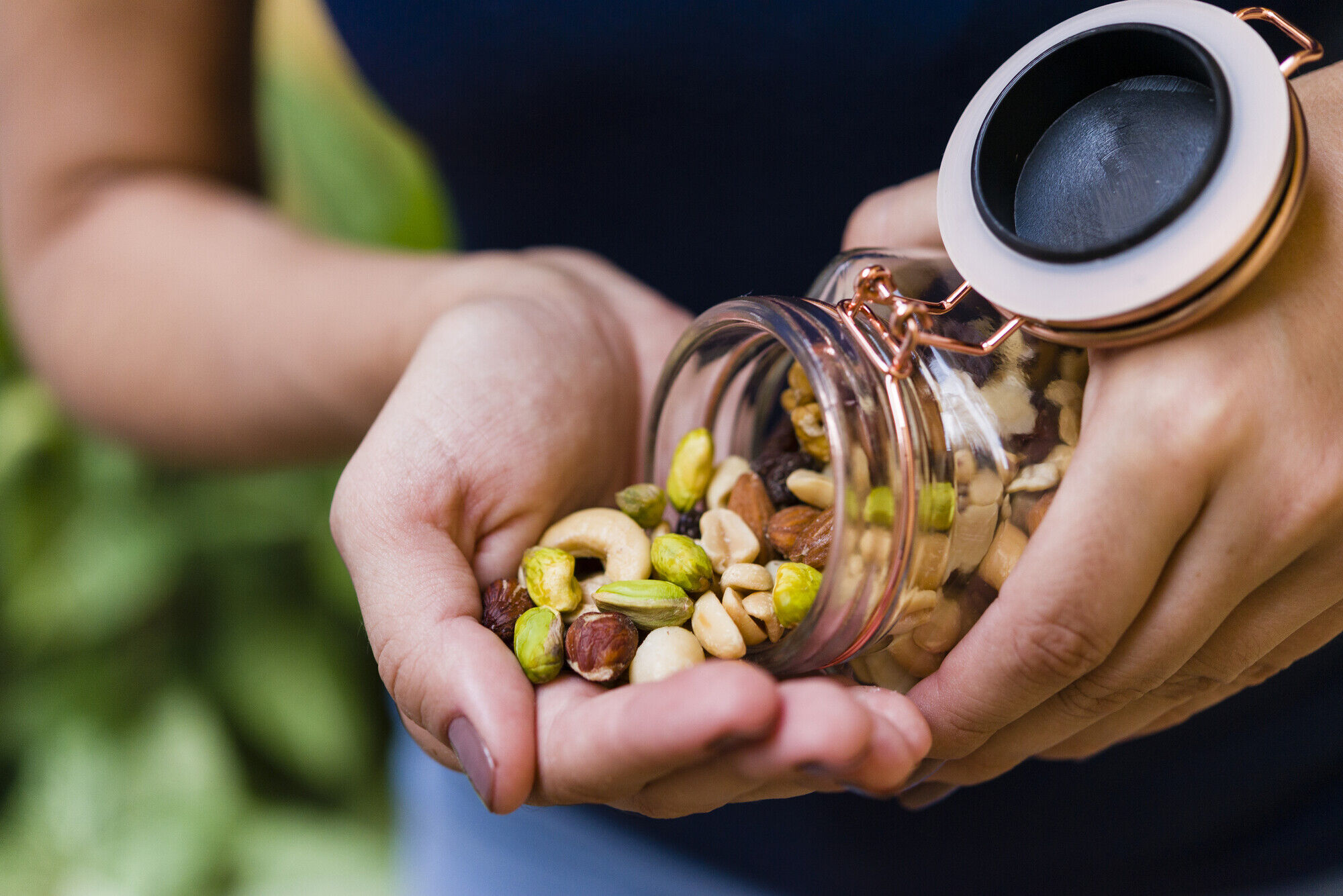Most of us aren’t getting the fibre we need. Let’s look at some ways we can turn that around and boost our fibre intake.
Fibre is an essential nutrient and getting what we need can help reduce cholesterol levels, as well as lower our risk of cardiovascular disease, bowel cancer and type 2 diabetes. Choosing foods high in fibre can also help you to feel fuller for longer (great if you’re trying to manage your weight), keep your digestive system healthy, support your immune system, and prevent constipation. Now you know the benefits, let’s look at getting enough.
There are 2 main types of fibre: soluble and insoluble. Soluble fibre is found in foods like fruit, oats, beans, nuts and seeds. It dissolves in water and is broken down into a gel-like substance in the colon, where it’s fermented by bacteria. It supports good gut health and can also help maintain good blood sugar control and healthy cholesterol levels. Insoluble fibre is found in foods like whole grains, nuts and vegetables. It doesn’t dissolve in water and is left intact as food moves through the digestive system. It helps to prevent constipation. Fibre-rich foods typically contain both types of fibre.
We should aim to get 30g a day. Currently in the UK, we’re consuming around 18g a day. We want to change that! Increasing too quickly could lead to bloating and discomfort so give your gut time to adjust by adding little by little, building up your fibre intake. Here’s some ways you can start to increase your fibre levels:
- Leave the skin on fruit and vegetables, making sure you wash them before eating.
- Add pulses like beans and lentils to sauces, pasta dishes, stews, salads and soups.
- Choose a wholegrain breakfast cereal that’s high in fibre (aim for at least 6 grams of fibre per 100 grams). Add fruit, nuts and/or seeds for an added boost.
- Choose wholegrain varieties of bread, pasta and rice.
- For snacks, try fruit, vegetable sticks, rye crackers, oatcakes, unsalted nuts or seeds.
- Aim for 5 portions of fruit and veg a day.
- Look for labels on food products stating “source of fibre” (contains at least 3g of fibre per 100g) or “high in fibre” (contains at least 6g of fibre per 100g). These claims are regulated by the European Food Safety Authority so you can trust them.



